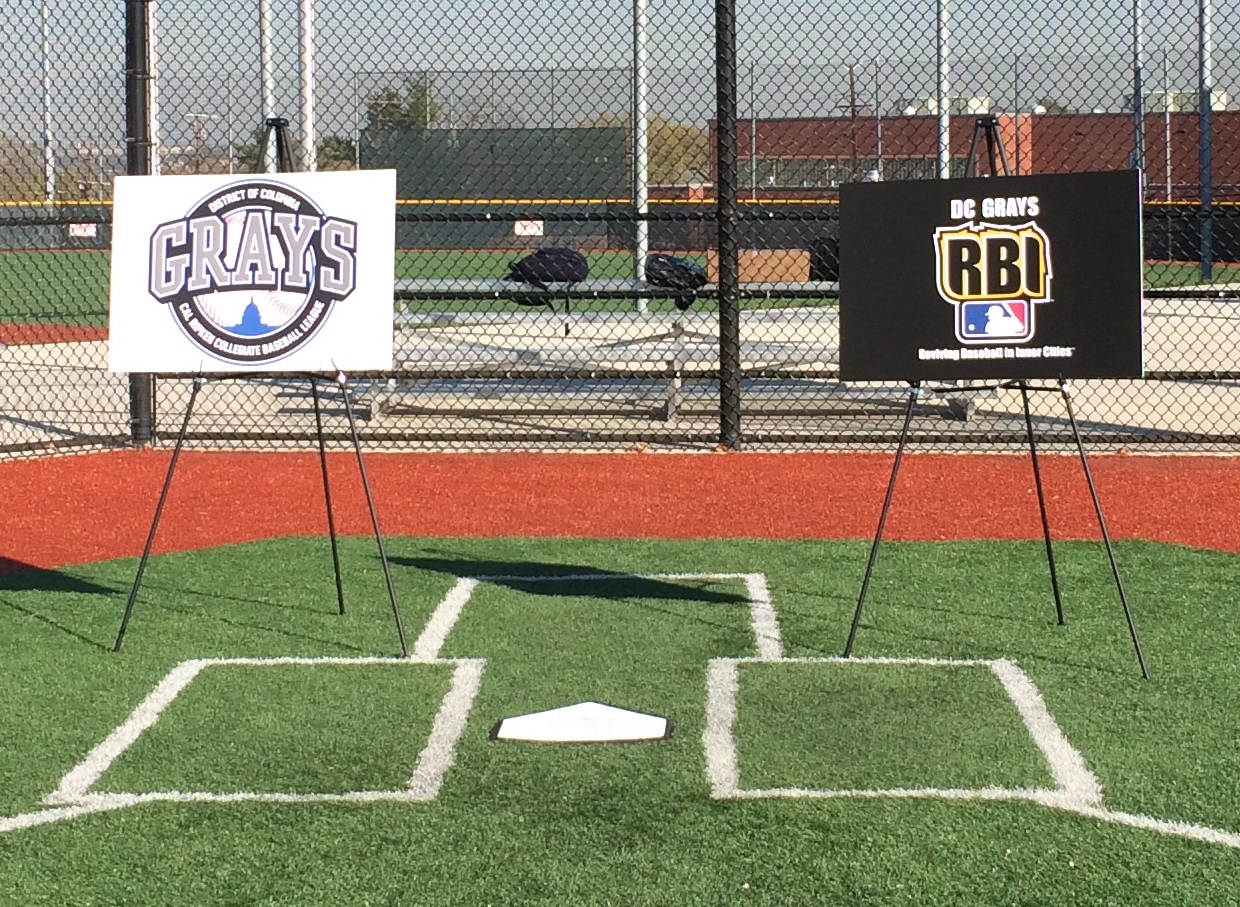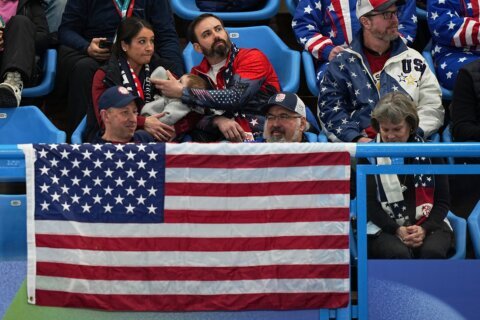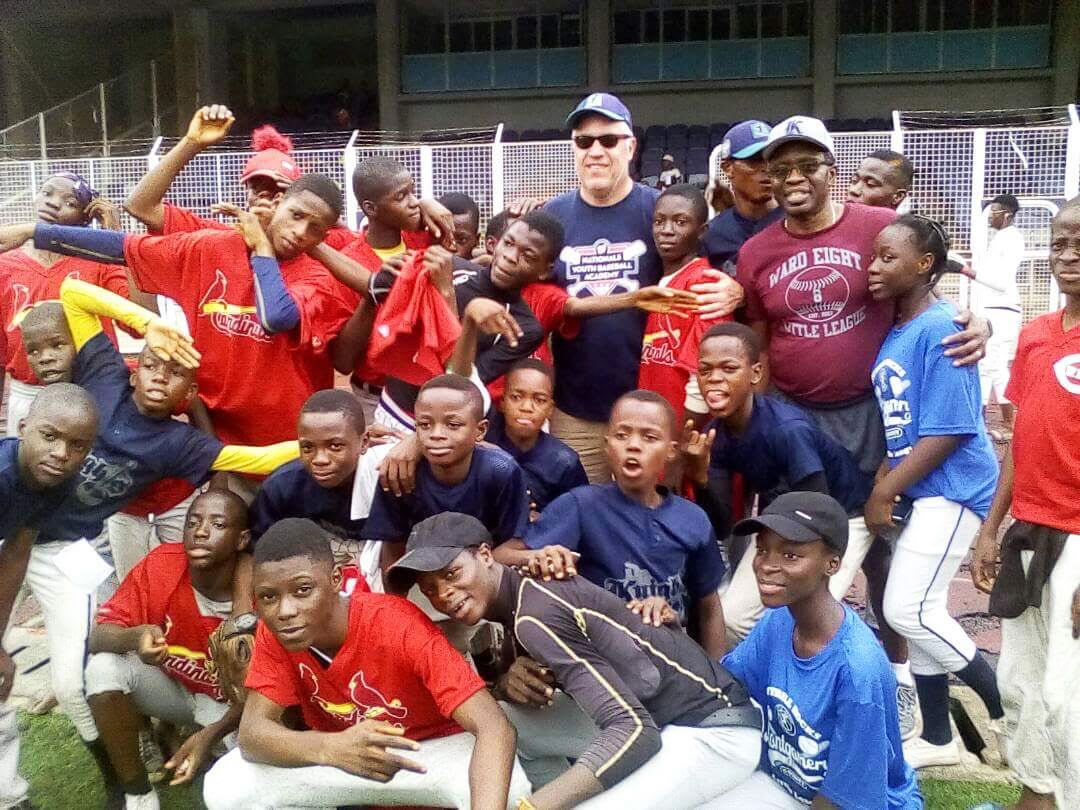
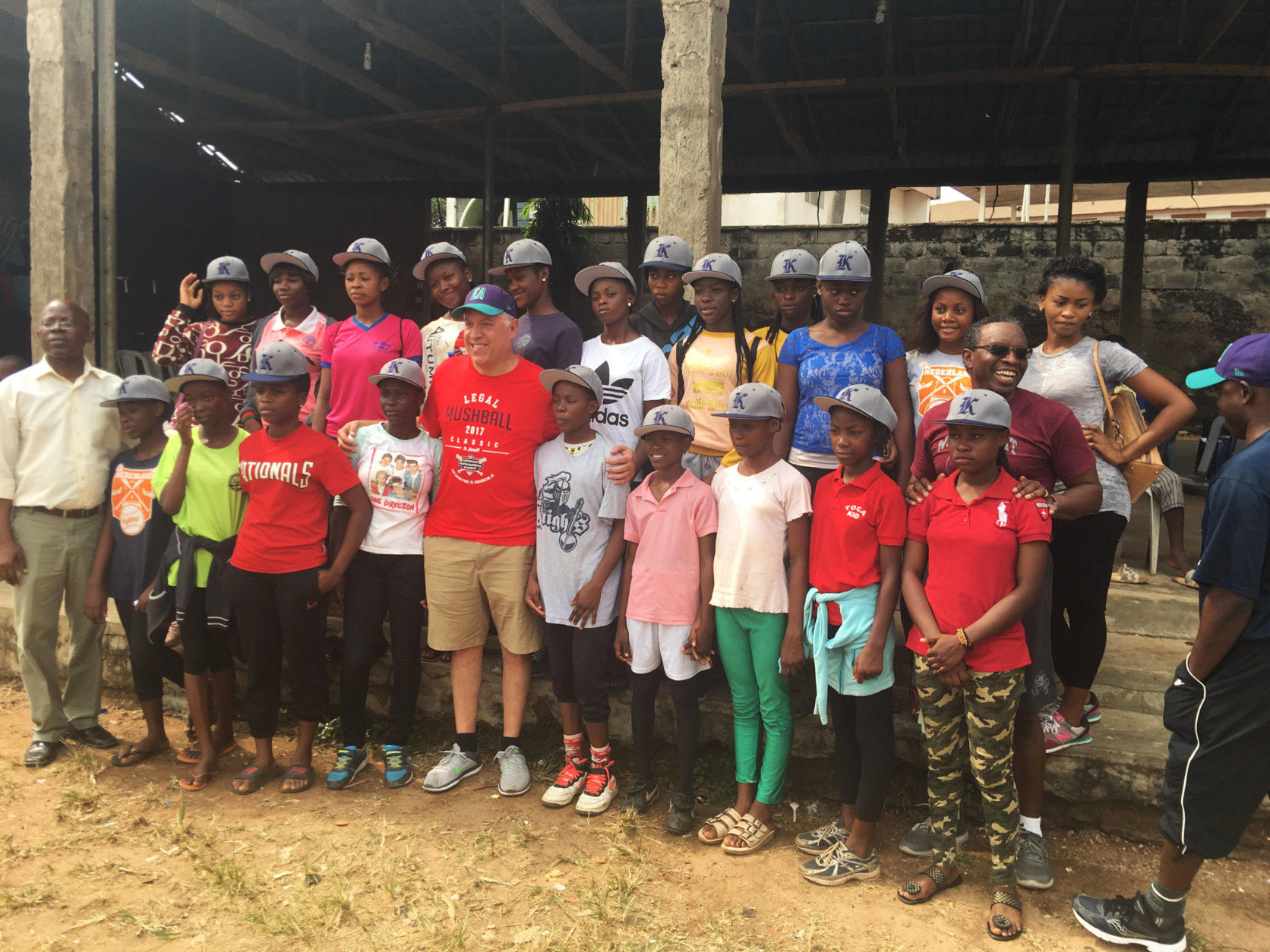
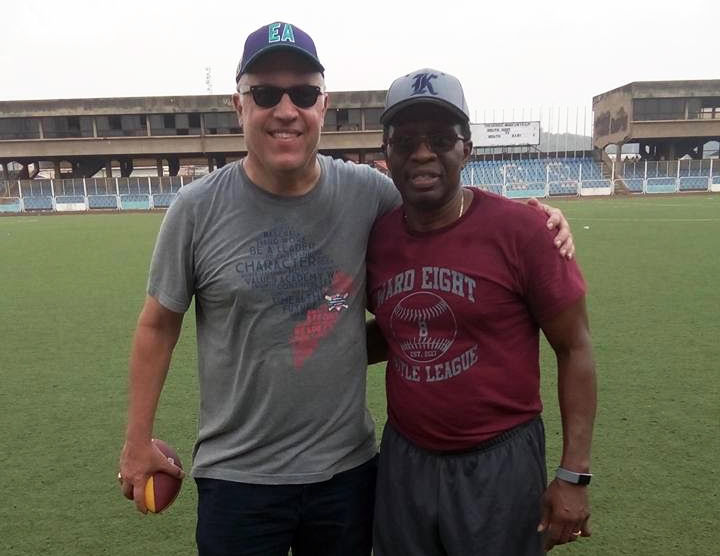
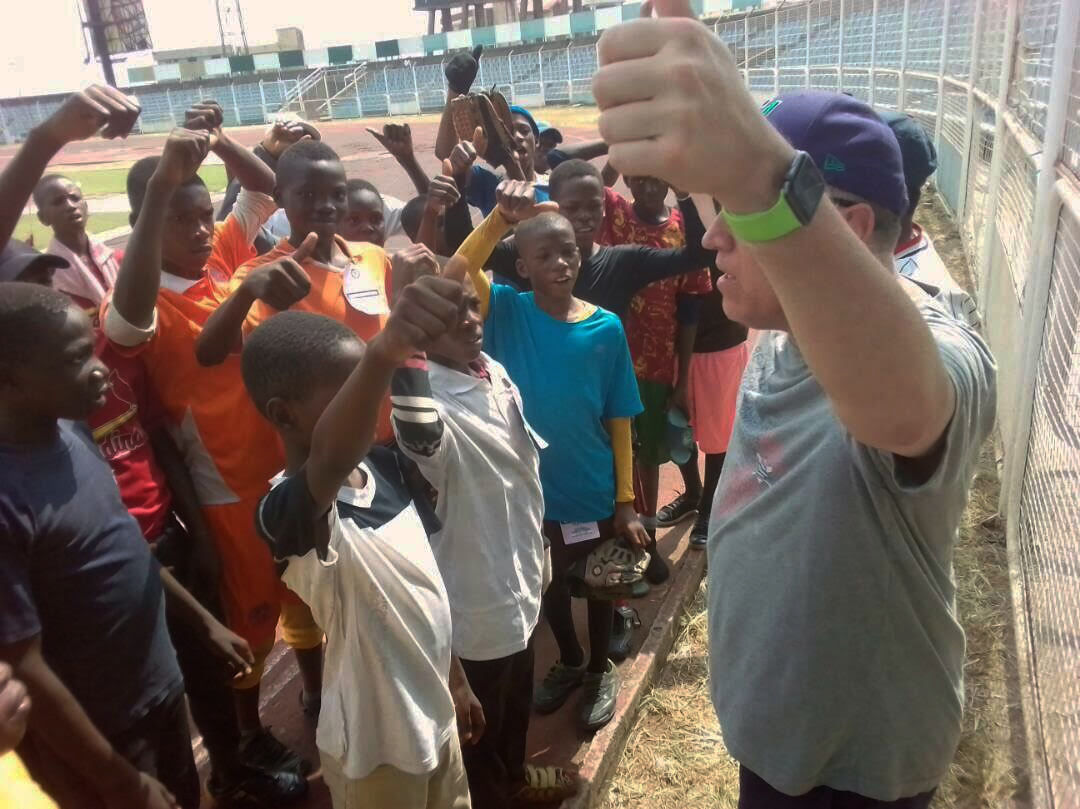
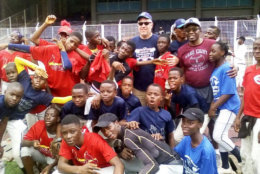
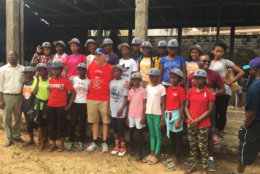
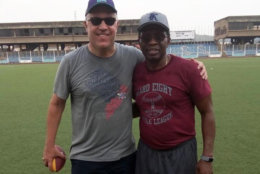
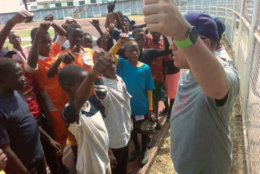
WASHINGTON — “This is the next Dominican Republic.”
The people working on the ground floor to teach and grow the game of baseball in Nigeria don’t all agree about the best approach to do so. But each of them shared that same sentiment, all in separate conversations — that they believe it has the chance to be the next hotbed of baseball talent in the world.
That group’s a motley crew: a D.C. youth baseball coach, a retired FBI agent, a native baseball evangelist and a benefactor with a personal interest in the game. But absent institutional support from the sport, they have been laying groundwork for more than five years that they hope will at least provide the spark to light the way for the game to take hold.
***
Gerard Hall was working on trying to revive baseball where it once lived and had gone dormant–at Howard University. A self-proclaimed “Ward 8 baby,” he’s been a coach and administrator for the nonprofit DC Knights as well as the Woodridge Warriors Little League. One day he was hanging around the cages with his son — who would go on to play at Old Dominion and in the minors — when he got an offer out of the blue.
“I’m looking for another coach to come with me to Nigeria.”
He’s been making the trip every year since to hold clinics, donate equipment and look for a more sustainable path for the game to grow. He’s also got help on the ground in Kehinde Laniyan, who is the District Administrator for the entire country’s Little League program. Slowly but surely, Laniyan helped organize and officially charter about 40 teams across the country.
“He was right there from the beginning,” said Hall. “He really wants to grow baseball, Little League Baseball particularly. He thinks it’ll improve lives.”
Laniyan never played the game growing up, but got involved back in 1992 as the Secretary of the Nigeria Baseball and Softball Association. They fielded teams for the All Africa Games and twice won silver. But the sport didn’t really take off. He became involved once again in 2012, upon Hall’s first visit, and is the strongest supporter of the mission to spread the sport on the ground in Nigeria today, where he says the kids involved are crazy about the sport.
“They love baseball and eat baseball every day,” he told WTOP. “They breathe it.”
The reason is obvious for Laniyan, but for Hall: Why Nigeria? The answer lies with another baseball fanatic, whose son also played the game professionally.
“This is her vision,” said Hall.
***
Ronke Champion is a die-hard Cubs fan. Born in Nigeria, she’s lived in Chicago 30 years and forged a successful life. Her son, Tobi Adeyemi, went to Florida A&M and played parts of two seasons of Independent League ball.
“It was my dream for my son to be the first African Major League Baseball player,” she told WTOP.
As it became clear that wasn’t going to happen, she didn’t want her dream to die just because he never made the majors. When his career ended in 2012, she looked for another way to get involved.
“I wanted to give something back, and sports is my passion,” she said.
That led her to Hall and to the yearly trips and clinics where he spends at least 10 days on the ground training players and coaches alike. But both dreamed of more, of a permanent facility to host and grow the game.
“She wanted a complex that had multiple sports, but that the main piece was going to be baseball,” said Hall. “My vision is having complexes, having training, having leagues around those complexes.”
While she was happy to fund the yearly visits, such a project requires exponentially more funding. Champion said she mailed a letter to MLB nearly every week for two years but never heard a response. Every time she’s felt deflated by the seeming lack of interest, though, Hall’s passion for the project has pulled her through.
“Every time I want to give up, he’s the one that keeps going. Every time I said, ‘I’m done,’ he won’t let me give up,” she said.
Champion sees the initiative as not just something that can help elevate lives immediately, but potentially one that can produce college scholarships and even a big-leaguer down the road, models to which the next generation can aspire.
“Once you see somebody doing it, then you can tell yourself it’s doable,” she said.
Now it’s just a matter of getting buy-in.
“Our goal is just to get a little help,” she said. “Just give Africa a chance.”
***
Nigeria is likely larger than you realize. Start at the tip of Maine, and draw a line along the Canadian border as you move west, along the Great Lakes, all the way to the far side of Ohio. Cut south along the border, then wind with the Ohio River southwest along Kentucky’s edge until it merges with the Mississippi and meets the Tennessee border. Cut back east along that border, and the top of North Carolina, until you reach the Atlantic once again, just south of Virginia Beach. That 15-state area comprises roughly 348,500 square miles. Nigeria is more than 351,000 square miles.
It’s also the seventh-most populated country in the world. Pushing 200 million residents, Nigeria is nearly twice as populous as the next biggest country in Africa. It is also deeply economically divided — in 2006, the United Nations Human Development Report estimated that 92.4 percent of Nigerians lived on less than $2 per day.
The south of Nigeria hugs the Gulf of Guinea, the elbow of the South Atlantic that bends into West Africa coastline between Benin on the west and Cameroon on the east. Lagos, the largest city in Africa, home to 20 million people, sits on the coast in the oil-rich part of the country. The group is working to build a facility in Ibadan, in Oyo Province, about 80 miles to the northeast.
The project has been rife with stops and starts. When you see the exhaustive process it took just to get Laniyan installed as the new District Administrator, you get a sense of how much of an undertaking building a facility is. Before they could even get him in charge to help coordinate the country’s youth baseball efforts, they had to clear the existing DA off the books, from decades prior.
“Man, you would think I just elected him the president,” said Hall. “It was turmoil. It was unbelievable.”
For four years, Hall tried to work through the government to build a facility before giving up and going a new direction. Now, they’re clearing the land behind a school to try to hopefully build on private school property. The goal is one, full-sized Little League field and a second practice field. Hall’s had plenty of local models to work from to develop his own.
“If you take the academy that’s here, that’s the model down the road,” said Hall, referencing the Washington Nationals Youth Baseball Academy in Southeast.
In the meantime, Hall has found another ally through the YBA, one who has a good grasp of the particular challenges he faces with the bureaucracy.
“They have all kinds of corruption issues with their government,” said Ray Thomas, Lower County Commissioner for Montgomery County Little League, who accompanied Hall on a recent trip. “They’ve only been independent since 1960.”
Thomas understands. He’s a retired FBI agent, a world in which the first thought anyone has in regards to Nigeria is the terrorism group Boko Haram. Thomas was able to secure a grant from the U.S. Embassy in Nigeria for his own trip last year, his first to the country, where he quickly learned about the day-to-day obstacles. When he and Hall arrived, they were warned not to post on social media that they were in Lagos, to avoid anything that might put a target on their backs as Americans with money.
That’s also an issue when it comes to equipment. There isn’t any on the ground.
“There were like four baseballs,” said Thomas of the situation at the clinic he helped run. “They don’t have cleats, they don’t have gloves for the most part.”
There are no sporting goods stores with baseballs, or bats, or gloves to be donated. But it’s also not as simple as, say, running an equipment drive in the states and shipping everything over.
“I’ve sent eight boxes of that stuff and it evaporates,” said Hall.
Perhaps that’s why, according to Thomas, the Little League administrators he spoke with before his trip were not as excited as he was.
“I told them about what we were going to do — and this is their territory. They were very skeptical. I could feel the cynicism, the lack of trust,” he said.
Attempts to reach Little League regarding their involvement in Nigeria before press time were unsuccessful.
That apprehension has abated a bit thanks to Champion bringing Laniyan to New Orleans for the Little League Congress in January, a once-every-four-years event that brings together administrators from across the world.
“They finally put a face with a name, so there’s more trust now,” said Thomas.
***
Major League Baseball has not been shy about tapping into international markets beyond those already represented in the big leagues to help spread the game’s popularity globally. Their current push is in China, where the league has built three baseball development centers, offering free education and training for kids all across the country as it seeks to develop the sport there. Those efforts have yielded just three minor league players, only one that has played in Rookie Ball before this year, in the near decadelong investment.
The value in appealing to the world’s most populous country is certainly understandable, especially after seeing the boon in popularity that the NBA experienced after Yao Ming reached the league. But as Champion sees it: “Africa is the new China.”
The league has hosted some programming on the continent. The Elite Development Programs that MLB started several years ago in South Africa were still running last year, drawing hopefuls from around the continent, including some from Nigeria in the past. A league representative said MLB has not confirmed whether they will once again hold a camp in South Africa this year. MLB has never held the event in Nigeria, and told WTOP they have no plans to do so at this point.
But Champion, Hall and Thomas see not just the millions of potential fans, but also the raw talent that Nigeria has to offer.
To wit — the 60-yard dash is a common race used by baseball evaluators to measure the kind of speed that plays well in the sport. At a high school All-America tournament in 2016, one player — Sajon Belser, an outfielder from Riverside High School in Ashburn, Virginia — broke the 7-second barrier, running a 6.9.
On one of his trips, Hall had a group of 13-year-old boys participating in a clinic line up to run the 60. Two of them ran it in 6.7. Hall was skeptical, so he pulled them out, lined them up, and had them run the race again. This time they finished in 6.5. In bare feet. On the MLB scouting scale, which slides between 20-80 to project skills, with 50 being the average score, that rates as 70 grade speed. That means they have plus-plus MLB speed right now.
That promise is what has Laniyan and Thomas champing at the bit to get the team more exposure. Specifically, they hope to raise $15,000 in travel expenses to get them to Poland this summer for the Europe-Africa region qualifying tournament, the same one Uganda won last year on their way to capturing the hearts of Americans and baseball fans around the world. They think Nigeria can be the next Uganda.
“I believe we will shake Europe and get to the World Series,” said Laniyan.
Hall’s not sure they’re ready for all that yet. The kids practice on a turf soccer field with no dirt, no lines, no fences, just bases laid out in a 60-foot diamond.
“Yes, you can take a team there, but you’ve got to understand what your competition is. You don’t know until you show up,” he said, referencing the distance from home plate to the fence on a standard Little League field. “You’re setting yourself up for a lot of disappointment.”
That doesn’t mean he isn’t encouraged. Last time he was there, they scrimmaged a team of 9- and 10-year-olds against the 11 and 12-year-olds. Hall expected the pitcher for the younger squad, a tiny 9-year-old, to get lit up. Instead, he was unhittable. It’s why even if Hall thinks dreams of winning in Poland are a few years off, the future is bright and maybe, someday, there will be a Major Leaguer who grows from his efforts.
“Each time I go there, I see another prospect,” he said. “It’s not that 12-year-old. It’s that 4-year-old. Chances are, the one we’re looking for hasn’t even been born yet.”

